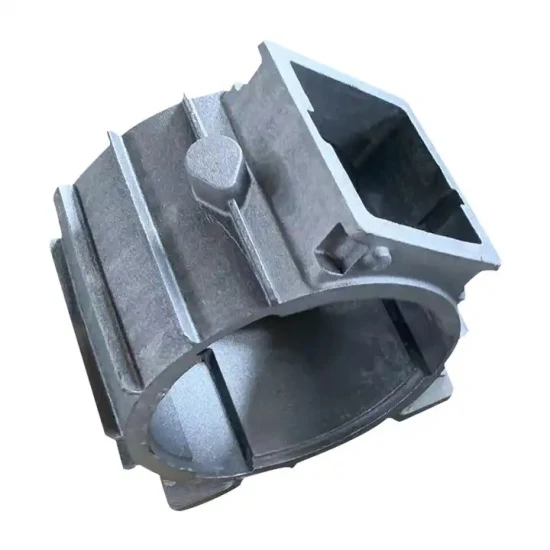More About Stahl Specialty Company
More About Stahl Specialty Company
Blog Article
Not known Facts About Stahl Specialty Company
Table of ContentsExamine This Report on Stahl Specialty CompanyWhat Does Stahl Specialty Company Do?About Stahl Specialty CompanyThe Ultimate Guide To Stahl Specialty CompanyStahl Specialty Company Can Be Fun For Everyone
Chemical Comparison of Cast Aluminum Alloys Silicon promotes castability by minimizing the alloy's melting temperature and boosting fluidness throughout spreading. In addition, silicon adds to the alloy's toughness and wear resistance, making it valuable in applications where resilience is essential, such as vehicle components and engine elements.It likewise enhances the machinability of the alloy, making it less complicated to process into ended up products. By doing this, iron adds to the total workability of aluminum alloys. Copper boosts electric conductivity, making it helpful in electrical applications. It also enhances deterioration resistance and includes in the alloy's general toughness.
Manganese adds to the toughness of aluminum alloys and enhances workability. It is typically made use of in wrought light weight aluminum products like sheets, extrusions, and profiles. The visibility of manganese aids in the alloy's formability and resistance to splitting during fabrication processes. Magnesium is a light-weight element that offers strength and impact resistance to aluminum alloys.
It allows the manufacturing of light-weight components with excellent mechanical residential properties. Zinc enhances the castability of aluminum alloys and aids manage the solidification procedure during spreading. It boosts the alloy's toughness and firmness. It is frequently located in applications where detailed forms and great information are essential, such as decorative spreadings and certain vehicle parts.
The Single Strategy To Use For Stahl Specialty Company
Since aluminum-silicon alloys have good casting residential properties, high gas buildings, easy processes, and superb deterioration resistance, aluminum-silicon alloys are most typically used in the die-casting industry at home and abroad. At the exact same time, aluminum-silicon alloys are also fairly early and commonly identified alloys created and used in die-casting. After constant study and enhancement, a lot of the existing worldwide mainstream aluminum-silicon alloys have actually been wrapped up and are nothing even more than A356, A360, A380, ADC12, B390, and A413.
The main thermal conductivity, tensile strength, yield stamina, and elongation differ. Amongst the above alloys, A356 has the highest possible thermal conductivity, and A380 and ADC12 have the lowest.

3 Simple Techniques For Stahl Specialty Company
In accuracy casting, 6063 is appropriate for applications where detailed geometries and premium surface area finishes are vital. Examples consist of telecommunication enclosures, where the alloy's remarkable formability permits streamlined and cosmetically pleasing layouts while preserving architectural integrity. Likewise, in the Lights Solutions market, precision-cast 6063 elements produce classy and efficient lighting components that need complex forms and excellent thermal efficiency.
(https://padlet.com/franceshoward64061/stahl-specialty-company-et70begh2tv8ncsl)
The A360 displays remarkable elongation, making it ideal for complex and thin-walled elements. In precision casting applications, A360 is well-suited for industries such as Consumer Electronics, Telecommunication, and Power Devices.

In precision casting, aluminum 413 shines in the Customer Electronic Devices and Power Tools industries. It's frequently used to craft complex elements like smartphone real estates, camera bodies, and power device cases. Its precision is impressive, with tight resistances approximately 0.01 mm, guaranteeing remarkable product setting up. This alloy's exceptional rust resistance makes it a superb option for exterior applications, ensuring durable, durable items in the stated markets.
How Stahl Specialty Company can Save You Time, Stress, and Money.
The aluminum alloy you select will significantly impact both the spreading process and the residential or commercial properties of the final product. Due to the fact see here now that of this, you have to make your decision carefully and take an enlightened technique.
Identifying the most ideal light weight aluminum alloy for your application will indicate weighing a broad variety of features. These comparative alloy qualities adhere to the North American Pass Away Casting Association's standards, and we have actually divided them into 2 groups. Aluminum Castings. The initial group addresses alloy characteristics that affect the production process. The 2nd covers qualities affecting the properties of the end product.
The alloy you choose for die casting directly impacts numerous elements of the casting procedure, like how very easy the alloy is to work with and if it is vulnerable to casting issues. Warm splitting, also referred to as solidification fracturing, is a typical die spreading issue for aluminum alloys that can lead to inner or surface-level splits or fractures.
Stahl Specialty Company Fundamentals Explained
Specific aluminum alloys are much more susceptible to hot fracturing than others, and your option ought to consider this. One more common problem found in the die spreading of aluminum is die soldering, which is when the cast sticks to the die wall surfaces and makes ejection difficult. It can damage both the actors and the die, so you ought to look for alloys with high anti-soldering residential properties.
Corrosion resistance, which is already a noteworthy feature of light weight aluminum, can vary substantially from alloy to alloy and is an important particular to consider depending on the environmental problems your item will certainly be exposed to. Wear resistance is another residential or commercial property generally sought in aluminum products and can separate some alloys.
Report this page